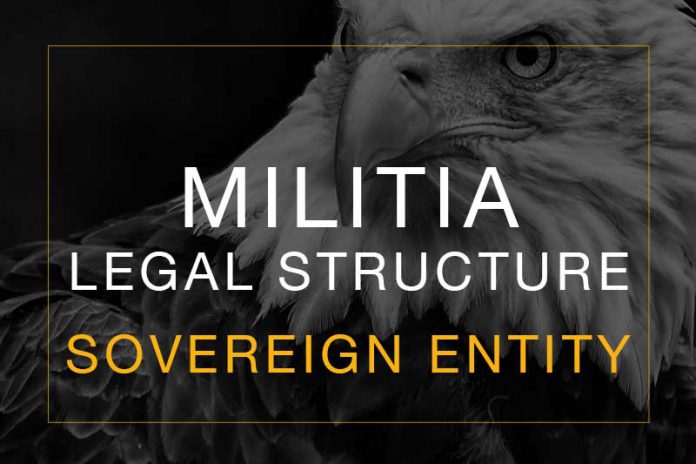Last Updated on February 19, 2023 by Constitutional Militia
Militia: A Sovereign Entity
“THE MILITIA OF THE SEVERAL STATES” ARE INSTITUTIONS OF GOVERNMENT, THOROUGHLY CIVILIAN, WHICH ARE LARGELY OUTSIDE THE JURISDICTION OF CONGRESS THAT MUST ALWAYS OVERSEE AND ENFORCE “THE POWER OF THE PURSE” AND “THE POWER OF THE SWORD”
Militia Structures Enforce State Implementation of Constitutional “Money”—Silver and Gold—No Consent From Congress is Necessary
The State as a sovereign entity, as one of the constituent parts of the federal system under the Constitution, has legal immunity from any Congressional dictate as to what it must use as money. The State cannot coin money, it cannot emit bills of credit (i.e., paper currency), but it can adopt for its own purposes anything it wants to use as money. And the only limitation is that when a State adopts something that it’s going to make a legal tender in payment of debts (i.e., require people to take) it must be gold and silver coin. So any State can adopt United States gold and silver coin—old or new. It could adopt foreign gold or silver coin, it could adopt private coinage if it wanted as its own money.
Militia Structures Enforce Individual Immunity From Contemporary “Gun Control”
As State government institutions, Militia Structures are largely outside the jurisdiction of the General Government (what many mistakenly refer to as the “Federal” government. A properly revitalized constitutional Militia would be immune from all contemporary forms of “gun control”. Why? Because Militia are State government institutions consisting of every “able-bodied” adult, and Congress cannot prevent any government institution from performing their constitutional duties. The “power of the purse” and the “power of the sword” are lodged with the authors and inheritors of the Constitution— We the People.
As State government institutions revitalized Militia Structures would be immune from all contemporary forms of “gun control”. Under the Constitution—the supreme Law— every “able-bodied” adult is required to possess Arms and accoutrements at least as good for military purposes as the “Arms” carried by equivalent troops in this country’s regular Armed Forces to perform their Militia service for “the security of a free State” (Second Amendment).
The States have the constitutional duty and sovereignty to implement the alternative constitutional currency—silver and gold based upon the U.S. money “Unit” the “dollar”. The people through a revitalized constitutional Militia Structure can oversee and enforce their immunity from any unconstitutional dictates from Congress as to what they must use as “Money”.





























